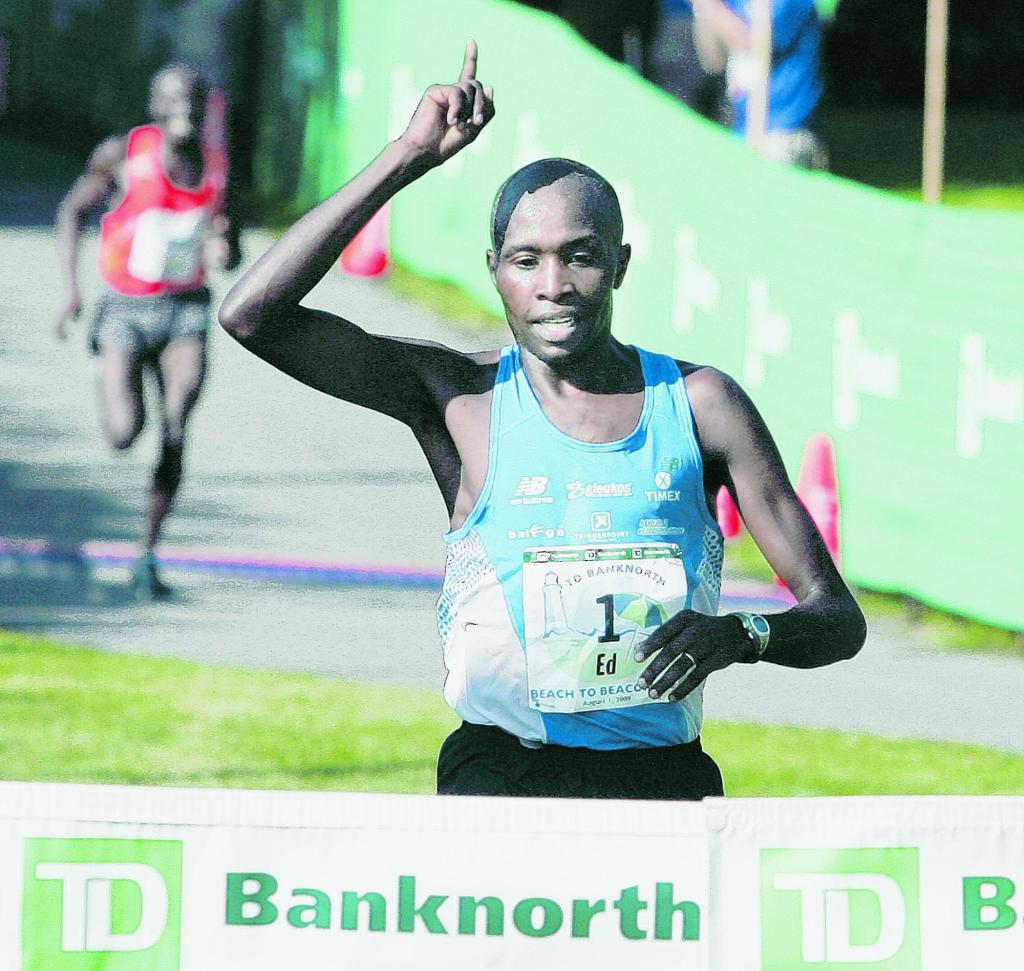PORTLAND – Every August the TD Bank Beach to Beacon 10K road race, founded by Joan Benoit Samuelson, attracts runners from all over the globe.
The New England coast is a perfect setting for a summer 10K and the diverse running crowd really makes for a great race as well.
It is a race just to register for the B2B every year as well, with online registration filling over 6,000 runner slots in just two hours in 2009.
Any road racer knows that this is just the nature of the beast of registering for a globally popular event.
Samuelson, Race Director David McGillivray and Race President David Weatherbie have unveiled new registration procedures that they claim make registering for the epic race fairer. But is it really? As a three-time Beach to Beacon finisher, I don’t think so.
The new registration procedure caters to Cape Elizabeth residents by allowing 600 Cape runners to sign up before anyone else in the general public.
Because the Cape Elizabeth community puts in such a huge effort to host the race, organizers reason that runners from the host town should get priority during registration.
Weatherbie stated that a large number of survey respondents from outside the Cape Elizabeth community voiced concerns regarding residents’ opportunities to register.
”They recognized the sacrifices the community makes in hosting this event and wanted a mechanism to ensure Cape residents can get in,” he said.
This Maine resident and race participant did not get invited to take part in a survey. One would think that the race director, president and founder would want such a person’s opinion.
Who else did they leave out of this survey? Certainly not the 579 Cape Elizabeth runners who finished the race in 2009. It doesn’t seem as if organizers had a problem getting nearly 600 residents into the race last year.
There is then the issue of holding a lottery for non-Cape runners who get denied one of the 4,000 slots left after Cape residents get their golden opportunity to register.
This lottery is a bit unnecessary considering the old way of registering online is a lottery in and of itself; you might get in and you might not.
Nabbing one of these coveted racing slots is all about taking responsibility to log on at the appropriate time. (The computer platform used in 2009 was not adequate to handle the volume of registrations, but Weatherbie has reassured runners that the platform has been upgraded appropriately for 2010).
Who doesn’t have to participate in the lottery? Well that would be the elite athletes, the charities and the ”streakers,” or people who have participated in every B2B since the dawn of the race’s time. Charities seem to be the only justifiable exception.
Does any of this sound fair? Yes, if fairness includes favoritism, petty feelings of entitlement, and ruining everyone’s fun.
Weatherbie has stated, ”By combining a lottery with the first-come/first-served component, everybody who wants into the race is going to get a fair shot and that’s really the best we can do.”
They could have done better. They could have had qualifying times, like the Boston and New York City Marathons do.
Qualifying times could have been reasonably set allowing for a narrowing of race entrants while still keeping a wide range of runners at different abilities.
This seems to be fairer than reserving spots for runners who are, for some absurd reason, deemed more deserving to run this race than the thousands of other runners who train just as hard and are just as enthusiastic.
These new registration procedures for the TD Bank Beach to Beacon have put a sour taste in this runner’s mouth.
Instead of a refreshing and welcoming summer event open to a global community of diverse runners, the TD Bank Beach to Beacon now seems more like a closed local event where if you’re not in the club you can’t play.
The only question left to ponder is this: Will runners also need to pay $5 as they enter Fort Williams to make it to the finish line?
Send questions/comments to the editors.



Comments are no longer available on this story